What is Aydat and what is it "eaten" with?
Buying hatamatata.com/">real estate in turkey/">Turkey, many people are faced with the unknown word Aydat. This term implies monthly expenses, so I sincerely advise you to familiarize yourself with the intricacies of aydat before buying or renting a home.
Aydat or Aydat is a monthly mandatory maintenance fee for a buy/house/">house, apartment, villa, residential complex in Turkey. The fee is compulsory, it is stipulated in the laws on condominiums (residential complexes), so it is very important information before buying or renting a property in Turkey. The amount of aydat is usually determined at a general meeting of the owners of the property, a person is appointed who collects the money and monitors its expenditure. Information about the meetings is distributed in advance: posted in the entrance, on the general bulletin board, by mail or, if there are few tenants, notified in person or via the Internet.

Before buying or renting a home in Turkey, it is imperative to know the size of the aydat
Only homeowners have the right to participate in the meeting. This is a question for tenants of an apartment, house or other real estate - they are usually put before the fact. However, if gas, water and electricity are paid by each kiracı (tenant), the aydat may not be included in the rent. You should check with the landlord about this, because let's say you want to rent a house for 1000 liras a month, but the aydat may be 200-300 liras a month in a good complex, which will significantly increase your monthly expenses.
But let's return to the meeting of owners. If one of them is unable to attend the meeting in person, he or she may delegate the right on the basis of a power of attorney to a third person. For a decision on any change to be made, more than half of the owners must attend the meeting. Then the decision is made by voting and determining the majority. Let's assume that more than half of the residents did not come to the meeting on any issue, but the issue is “burning”. What to do? In such cases, usually, the second meeting is appointed, and then it will not matter how many people will come, they vote with any number of owners on the principle “who was important and interesting - already here”.
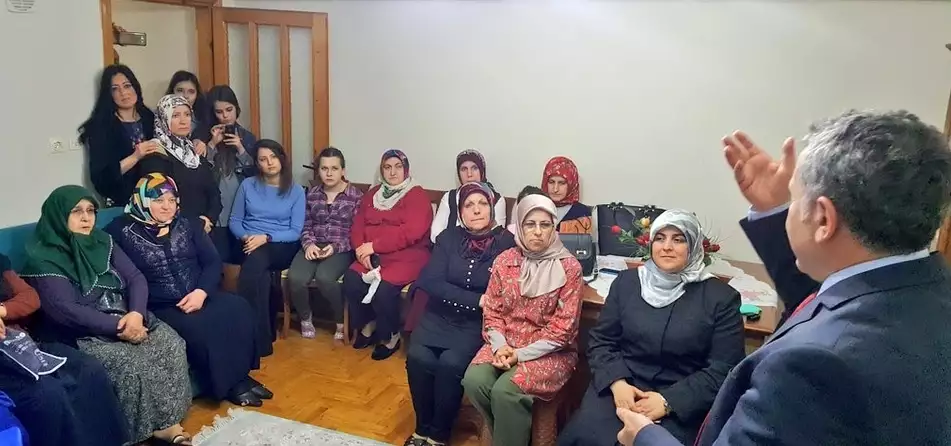
How often do small house owners' meetings take place?
If the complex is small, it is often one of the most active residents, a kind of manager. In Turkish he is called “kapıcı” - kapıcı - from the word kapı - door. It literally translates as doorman, concierge, gatekeeper. When entering a new house, don't be surprised if one of the neighbors introduces himself to you as kapıcı, you will know who to pay aydat to. In addition, kapıcı refers to kapıcı in case of problems not only in the complex, but also between neighbors. A common example in Turkey is the hanging or shaking out of carpets from the balcony by the upper neighbor when the lower neighbor does not like it at all. Sometimes the building manager can tell the upper neighbor not to do this.
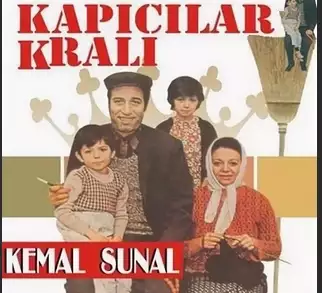
Kapıcı is sometimes a low-paid but respected job. The person who takes care of the cleanliness of the house is listened to on many issues. A movie “The King of Concierges” was even made in Turkey with the famous Turkish comedian Kemal Sunal.
In large complexes, or if there are many foreigners living in the house, most often this responsible work is entrusted to a special company like our housing and utilities (but unlike the latter without any arbitrariness). They conclude a contract with it. Yes, it is certainly more expensive, but on the other hand greatly simplifies life. Companies every year at a special meeting make a big report on the work done, expenses, repair plans, hiring new staff.
9 October 2024
29 January 2025
29 September 2025
29 January 2025
9 October 2024

What does the aydat go to?
Let's break down point by point what the monthly fee consists of:
1) First of all, it is the cleaning staff. As our Russian-speaking Turkish-speaking fellow citizens say - temizichki, from the Turkish word temiz - clean. If it is just a residential house, it is enough one cleaner who comes a couple or three times a week. But if it is a cite or a large residential complex, then to the cleaning of entrances are added janitorial services, cleaning the surrounding area. If there are front gardens around the houses and the territory of the residential complex is decorated with trees and flowerbeds, the services of a gardener are required in addition
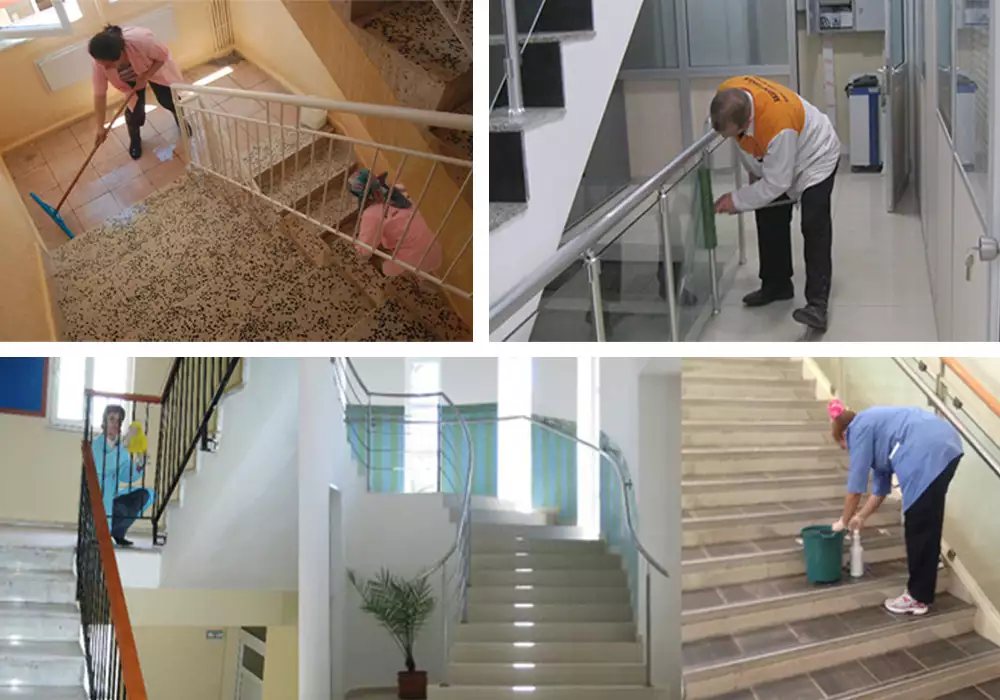
A clean entryway and staircase is the face of the house.
2) Security services - they are not available everywhere, but mostly in large residential complexes. The guards do not allow outsiders, such as the ubiquitous Turkish gypsies, to enter the territory. It will be safe enough on the territory of the complex
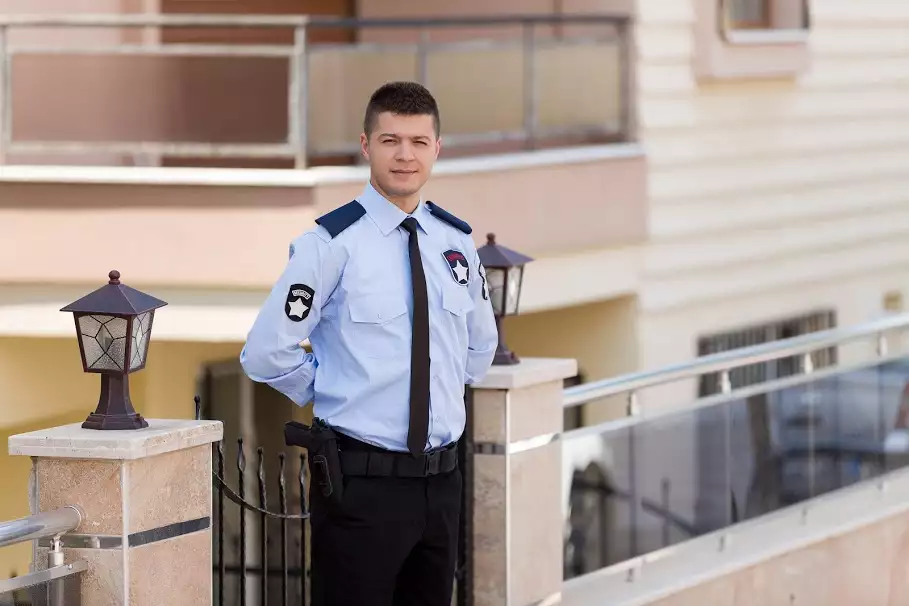
A guard at the entrance to a site - a Turkish residential complex
Concierges - they are not everywhere, more often in elite complexes. Sometimes there are several of them and it is a whole reception. Sometimes they combine the function of security, preventing outsiders from entering the building, and are also engaged in collecting aydat.
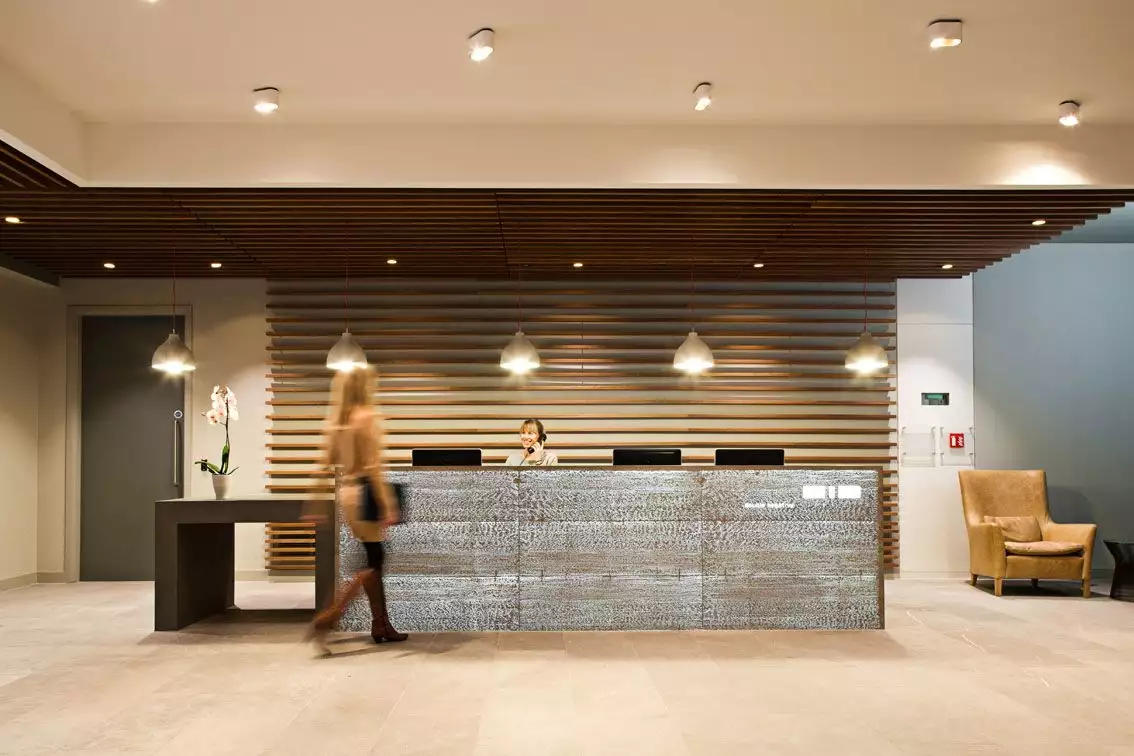
Concierge in a luxury complex
Maintenance of the elevator, repair of the facade, roof, removal of garbage from the territory of the closed residential complex, replacement of street and entrance light bulbs, replacement of broken glass, maintenance of the fountain in working condition, if available, and other landscaping of the territory
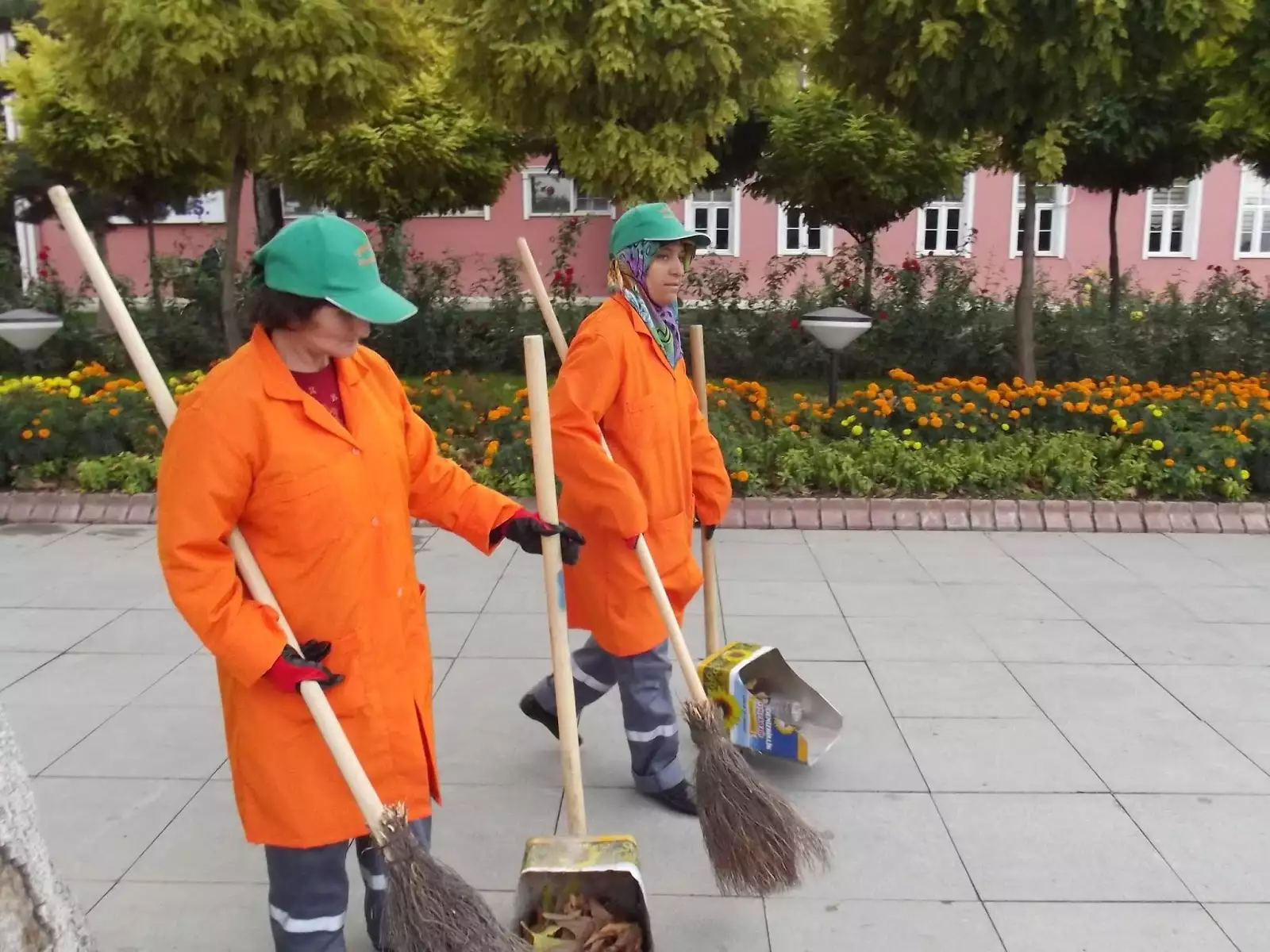
Turkish wipers
If your complex has a parking lot, a fitness room, a sauna or hammam, a swimming pool, a cinema, a bowling alley, a children's complex and animation for children, and so on and so forth - then their maintenance (technical and staff salaries) will significantly increase the amount of aydat. The infrastructures of some elite residential complexes are so self-sufficient that they allow you not to leave them for a long time and have an interesting time. It is like living in a five-star hotel all the time.

House with swimming pool in antalya/antaliia/">Antalya
Adding up all these components results in a tidy sum, which, fortunately, is divided equally among all residents. Therefore, the more owners there are in a given house, in a given residential complex or in a given area, the less aydat will be paid to each of them.
Aydat is usually paid personally to the manager (kapıji) or to a specific person from the management company. In entrances you can often see a board of “shame” - who has not paid aydat and for what month. In small houses, aydat is paid hand-to-hand, but if there are many tenants in the complex, to avoid misunderstandings, it is better to pay aydat by receipt or through the bank.
Is it possible not to pay aydat?
NO. Not at all. By not paying the aydat set by the general meeting you are breaking the law. “How come? - You will say, - I come to my apartment in Turkey only for 3-4 months a year in the summer season. Why should I pay aydat when I am not even in Turkey?” Unfortunately, you have to pay because the grounds are taken care of all year round, not just when you are in Turkey. In winter, for example, while you are away, the same gardener covers sensitive plants, another employee takes care of the pool. Garbage removal from the territory continues. So when you return, you will still have your well-maintained and beautiful neighborhood and comfortable home waiting for you.
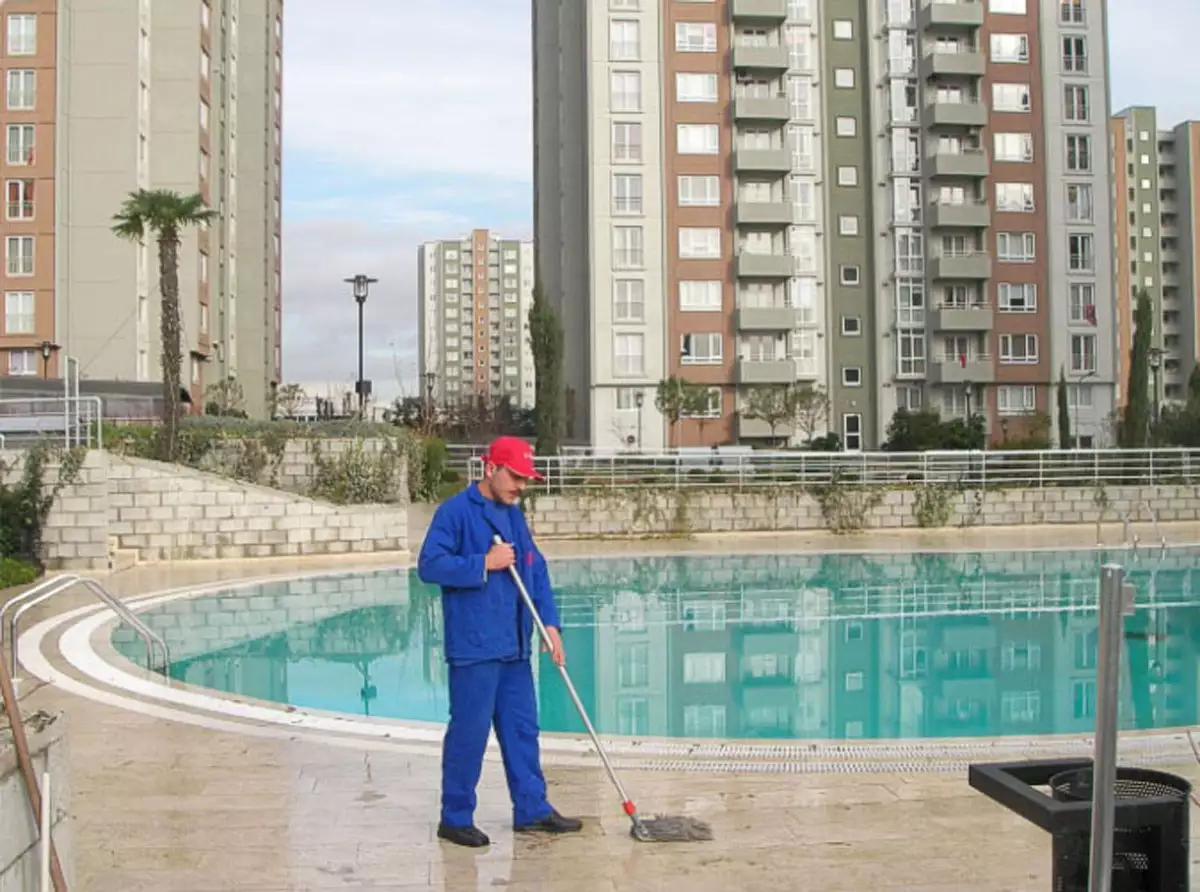
Turkish apartment complex with swimming pool in winter.
Summarizing, I would like to say, approach extremely responsibly to the purchase and rental of housing in Turkey, be sure to consider your future aydat as one of the important payments, which ensures the comfort of your stay in Turkey.
Like the article - share it with your friends in social networks, let them also learn how important “AIDAT” is. See you on Hata Matata.
Comment
Popular Posts
9 October 2024
9979
29 September 2025
459
29 January 2025
1587
9 October 2024
1505
Popular Offers

Subscribe to the newsletter from Hatamatata.com!
Subscribe to the newsletter from Hatamatata.com!
I agree to the processing of personal data and confidentiality rules of Hatamatata














